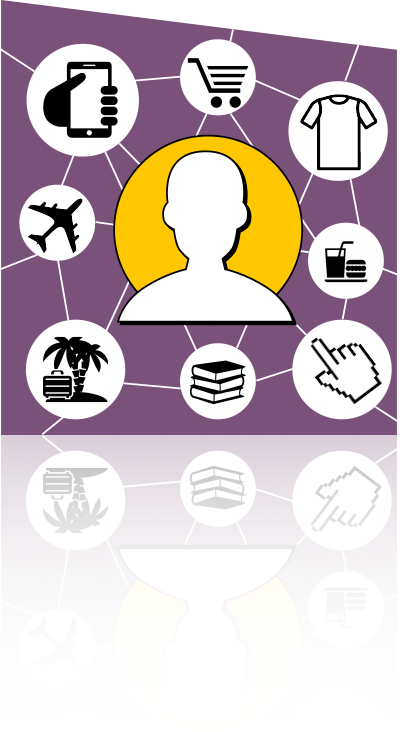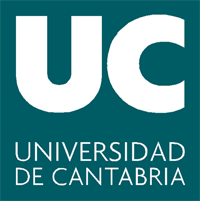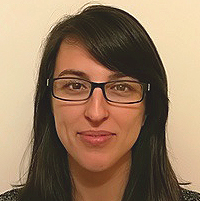Consumer Behavior (2018)
Topic outline
-

Teaching Faculty
José Manuel Fernández Polanco
Patricia Martínez García de Leaniz
Department of Business Administration
This course helps students to acquire a deeper understanding of Consumer Behavior in today’s consumer societies. It explains the principles and theories that characterise consumers and how marketers devise strategies and commercial tactics according to the way they behave.
Keywords
Personality, Learning, Perception, Motivation, Attitudes, Persuasion, Reference Groups, Culture, Social Class, Lifestyle.
-
Course Information
-
Course title: Consumer Behavior
-
Code: G921
-
Department / Unit: Department of Business Administration
-
Degree / Master’s: Degree in Business Administration
-
Faculty: Faculty of Law and Economics
-
ECTS credits: 6
-
Language of instruction: English
-
Instructors: José Manuel Fernández Polanco & Patricia Martínez Gacía de Leaniz
Course structure
- Topic 1. Sources, aims and scope of consumer behavior.
- Topic 2. The role of consumers in the economic theory.
- Topic 3. Complex choice models.
- Topic 4. Intelligence.
- Topic 5. Personality.
- Topic 6. Learning.
- Topic 7. Perception.
- Topic 8. Motivation.
- Topic 9. Attitudes and persuasion.
- Topic 10. People in groups.
- Topic 11. Family.
- Topic 12. Culture.
- Topic 13 & 14. Social class and lifestyles.
-
-

Required reading list
-
J.P. Peter & J. Olson (2010): «Consumer behavior». 9th Ed. Ed. McGraw-Hill.
-
L. Schiffman & L. Kanuk (2010): «Consumer behavior». 10th Ed. Ed. Prentice Hall.
-
W.D. Hoyer & D.J. Macinnis (2008): «Consumer behavior». Ed. Cengage Learning.
Suggested additional reading
-
R. Bagozzi, Z. Gurhan-Canli & J. Priester (2002): «The social psychology of consumer behaviour». Open University Press.
-
M. De Mooij (2004): «Consumer behavior and culture: consequences for global marketing and advertising». Ed. SAGE.
-
D. Howard, A. Kirmani & P. Rajagopal (2012): «Social influence and consumer behavior». Ed. Psychology Press.
-
C. Janson-Boyd (2010): «Consumer psychology». Ed. McGraw Hill.
-
-

- MC-F-001. Topic 1. Sources, aims and scope of consumer behavior.
- MC-F-002. Topic 2. The role of consumers in the economic theory.
- MC-F-003. Topic 3. Complex choice models.
- MC-F-004. Topic 4. Intelligence.
- MC-F-005. Topic 5. Personality.
- MC-F-006. Topic 6. Learning.
- MC-F-007. Topic 7. Perception.
- MC-F-008. Topic 8. Motivation.
- MC-F-009. Topic 9. Attitudes and persuasion.
- MC-F-010. Topic 10. People in groups.
- MC-F-011. Topic 11. Family.
- MC-F-012. Topic 12. Culture.
- MC-F-013. Topics 13 & 14. Social class and lifestyles.
- MC-F-001. Topic 1. Sources, aims and scope of consumer behavior.
-

- EP-F-001. Topic 0. Introductory task.
- EP-F-002. Topic 1. Discussion questions.
- EP-F-003. Topic 2. Discussion questions .
- EP-F-004. Topic 4. Discussion questions.
- EP-F-005. Topic 5. Discussion questions.
- EP-F-006. Topic 6. Discussion questions.
- EP-F-007. Topic 7. Discussion questions.
- EP-F-008. Topic 8. Discussion questions.
- EP-F-009. Topic 9. Discussion questions.
- EP-F-010. Topic 10. Discussion questions.
- EP-F-011. Topic 11. Discussion questions.
-

Sample exam
-
PE-F-001. Final exam.
Assessment criteria
ASSESSMENT METHODS AND CRITERIA "CONSUMER BEHAVIOR"
Description
Type
Final assessment
Retake
%
Midterm exam 1
Written exam
No
Yes
30%
-
Minimum mark: 5.00.
-
Duration: 1 to 2 hours.
-
Date: During the course.
-
Retake conditions: Final Exam.
-
Comments: The student will pass the contents of this block when a mark of 5 is obtained.
Group work
Coursework
No
Yes
30%
-
Minimum mark: 0.00.
-
Duration:
-
Date: During the course.
-
Retake conditions: Final Exam in September.
-
Comments:
Individual work
Coursework
No
No
10%
-
Minimum mark: 0.00.
-
Duration:
-
Date: During the semester.
-
Retake conditions:
-
Comments: The student must defend the work in class.
Midterm exam 2
Written exam
No
Yes
30%
-
Minimum mark: 5.00.
-
Duration: 1 to 2 hours.
-
Date: During the course.
-
Retake conditions: Final Exam.
- Comments: The student will pass the contents of this block when a mark of 5 is obtained.
TOTAL
100%
COMMENTS:
-
Students with Midterm Exams pending can make up for them in the Final Exam on the date scheduled by the governing board. The maximum mark that can be obtained for passing the Final Exam is 6. The marks obtained for coursework will be added to this mark for calculation, according to how they are weighted.
-
The Tests and Midterm Exams still pending during the course will be retaken in the September sitting.
COMMENTS for part-time students:
-
Part-time students must pass the Final Exam, for which they can obtain a maximum mark of 6 points. Students can increase this mark with the mark for an assignment whose content is equivalent to Group Work and whose submission deadline is the Exam performance date.
-
-
-


José Manuel Fernández Polanco
Department of Electrical and Energy Engineering
UNIVERSIDAD DE CANTABRIA
Additional information
Patricia Martínez García de Leaniz
Department of Electrical and Energy Engineering
UNIVERSIDAD DE CANTABRIA
Additional information

